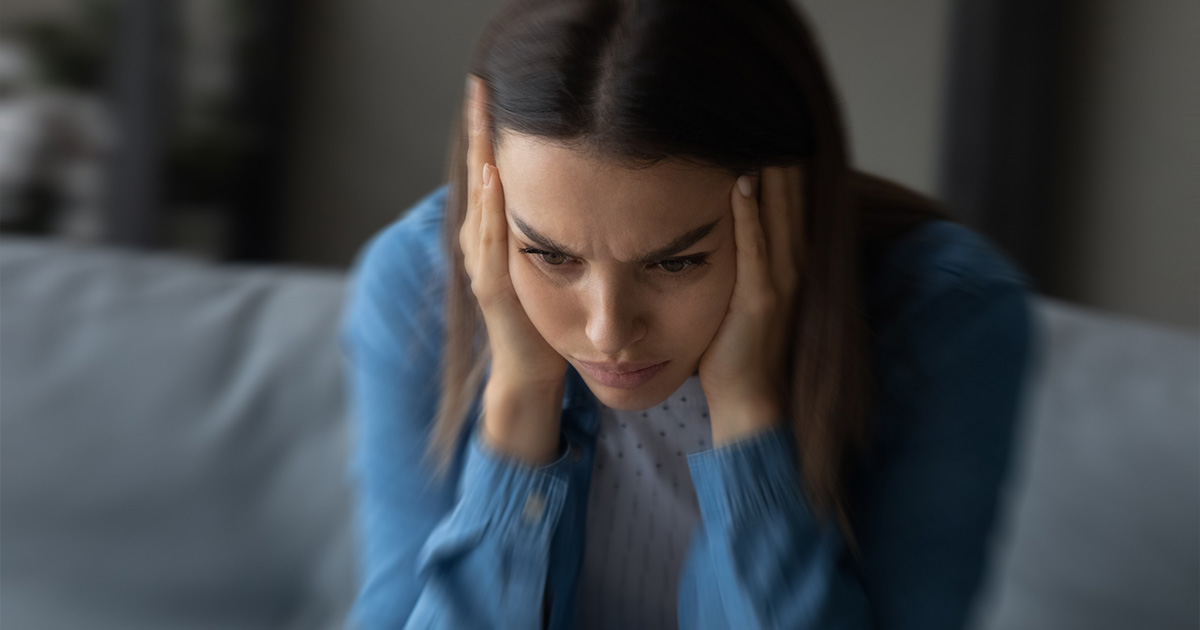Anxiety in the new year and tips for a calmer tomorrow

As we usher in another new year filled with hope and anticipation, it's important to acknowledge that for many, the prospect of the unknown can be a source of anxiety. The start of a new year often comes with resolutions, goals, and expectations, which can lead to increased stress and anxiety. In this article, we'll explore why anxiety can be common at this time and offer practical strategies to help you navigate it.
Understanding New Year anxiety
The new year signifies a fresh start, a chance to make positive changes and set ambitious goals. While these aspirations are healthy, they can also be a source for anxiety. The pressure to achieve those resolutions, the fear of failing, and the uncertainty about the future can all contribute to heightened anxiety levels.
Additionally, the holiday season can be emotionally taxing for many individuals. The juxtaposition of festive cheer and personal reflection can bring to the forefront feelings of loneliness, grief, or unmet expectations, further exacerbating anxiety.
As one Inspire member puts it:
“I want to be alone but still scared to be lonely. I want to have friends but hate socializing. It's a new year, and I still see anxiety and depression.”
Strategies to combat New Year anxiety
Set realistic goals
One of the primary reasons people experience anxiety in the new year is due to setting unattainable goals. Instead of aiming for perfection, set realistic and manageable goals. Break them down into smaller, achievable steps to make your progress more tangible and less overwhelming.
A goal as simple as a daily gratitude practice may help you lower your anxiety. One Inspire member started a daily gratitude post over a year ago, inviting other members to join. There are over 230 replies now on this member’s only post.
Practice mindfulness
Mindfulness techniques, such as meditation and deep breathing exercises, can help you stay grounded in the present moment. Mindfulness can reduce the overthinking that often fuels anxiety about the future. Dedicate a few minutes each day to quiet reflection and relaxation.
One Inspire member shared some tips for incorporating a mindfulness meditation into your new year routine:
“Studies have shown for some time the benefits of a mindfulness-based stress reduction (MBSR) program in reducing stress levels. Techniques such as focused breathing and body awareness can help trigger your parasympathetic nervous system and kick in your relaxation response, leading to decreased levels of the stress hormone cortisol.
Mindful meditation can also help improve focus and contribute to overall mental well-being.
A few simple meditation techniques:
1. "Do nothing" meditation - a chance to stop what you're doing and pause for a few moments.
2. Focused breathing - sit for a moment and simply pay attention to your breath.
3. Box breathing - a great way to immediately relax your mind and body when stress is high.
4. Walking meditation - get in some steps while relaxing your thoughts and breathing naturally.
5. Nature-inspired meditation - focus your attention externally on nature's beauty as a momentary break. Step outside, look up, or at a tree, flowers, or grass.”
Stay connected
Loneliness can intensify anxiety. Make an effort to stay connected with friends and loved ones, even if it's through virtual means. Social support can provide comfort and a sense of belonging during uncertain times.
Inspire’s Mental Health America Community, made in partnership with Mental Health America, is a supportive place where people with anxiety can share their experiences, find support, and connect.
Seek professional help
If your anxiety becomes overwhelming and disrupts your daily life, consider seeking help from a mental health professional. Therapy can provide you with valuable coping strategies and a safe space to address your anxieties.
One Inspire member shared the success they had in working with a therapist and a psychiatrist to diagnose and treat the underlying causes of their anxiety.
“Hello everyone! I am writing to check in, with good news! I have been working very hard with therapy and my psychiatrist and I am really starting to feel much better! I didn't realize until about a month and a half ago that a lot of my anxiety was caused by Major Depressive Disorder. My psychiatrist and I went through four different medications before we found two that work together that make me feel much more like myself!”
Limit exposure to negative news
The constant stream of negative news can exacerbate anxiety. While it's essential to stay informed, set boundaries on how much news you consume. Focus on reliable sources and take breaks when needed.
Make healthy lifestyle choices
A balanced diet, regular exercise, and adequate sleep are crucial for managing anxiety. These lifestyle choices can help regulate your mood and reduce the physical symptoms of anxiety.
Challenge negative thoughts
Anxiety often stems from negative thought patterns. Challenge these thoughts by asking yourself if they are based on facts or assumptions. Replace irrational thoughts with more balanced and positive ones.
Recently, an Inspire member posted about the success they had overcoming negative thoughts about others and themselves through forgiveness:
“Recently, I had the most amazing, the most empowering experience with forgiveness. I was sick and tired of negative repetitive thoughts of revenge, bitterness, and regrets. Against people, experiences, and myself. Then one night, finally and successfully, I forgave everyone, everything, and myself. I forgave my whole past. I told myself that I was calm and serene, and it changed my whole experiences of life immediately and immensely. I am cleansed. I am grateful that I live in the present blessed moment, and I am good enough to be grateful and beyond any resentment or bitterness about the past.”
Keep a journal
Writing down your thoughts and feelings can be a therapeutic way to release pent-up emotions. It also allows you to identify recurring patterns and triggers that contribute to your anxiety.
Practice self-compassion
Be kind to yourself. Understand that it's okay to stumble and face setbacks. Self-compassion can help you approach challenges with a more forgiving and gentle attitude. As the member post about forgiveness above shows, self-compassion can often help open doors to more self-compassion.
Celebrate small wins
Don't wait for the end of the year to celebrate your achievements. Acknowledge and celebrate your small victories along the way. These milestones can boost your confidence and motivation.
One Inspire member celebrated a small win over their anxiety:
“Yesterday I had a real breakthrough. I'm very excited! I have been having trouble traveling, however I made it to my destinations, almost anxiety free!!! I had some difficulty going inside the flea market we went to, but the way I see it, today is a new day! Once I overcome the anxiety I feel, I can begin going into places again. I'm so excited, I can barely contain it, Will follow up later in the day with news about how I do at the flea market!! Have a wonderful day, and God bless.”
Anxiety in the new year is a common experience, but it doesn't have to define your journey. By implementing these strategies and prioritizing your mental well-being, you can approach the new year with greater resilience and a calmer outlook. Remember that it's okay to seek support and take one step at a time. The path to a more peaceful and fulfilling new year starts with self-care and self-compassion.
Join the Mental Health America Community on Inspire for more resources and support.
Disclaimer
Member comments have been lightly edited for length and clarity. This content is for general informational purposes only and does not necessarily reflect the views and opinions of any organization or individual. The content should not be used as a substitute for professional medical advice, diagnosis, or treatment. Please consult your healthcare provider about any questions you may have regarding a medical condition.




